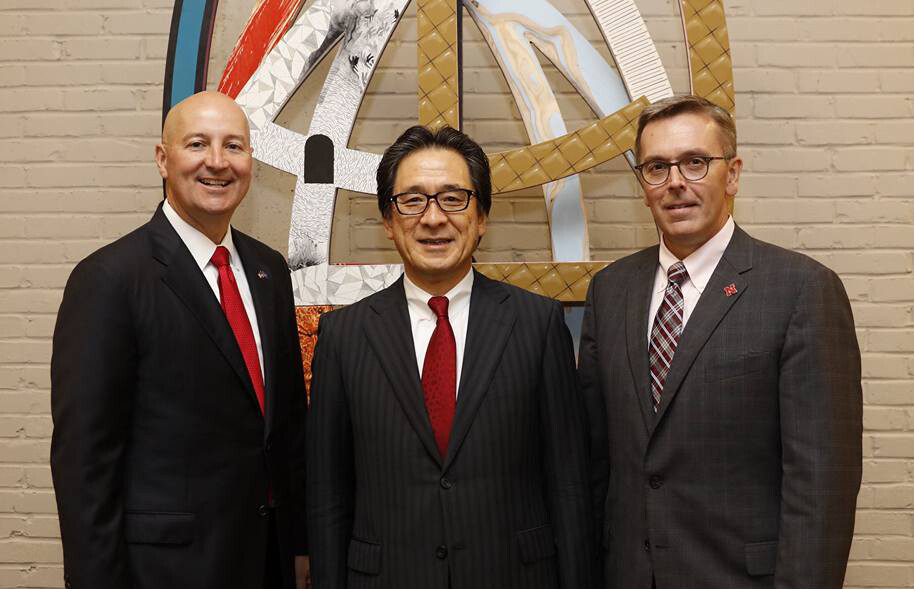
Nebraska can expect to benefit from the Trans-Pacific Partnership, Hiroyuki Ishige, chairman and CEO of the Japan External Trade Organization, told guests at Nebraska Innovation Campus Sept. 13.
Ishige spoke as a guest of the Clayton K. Yeutter Institute of International Trade and Finance currently in development at the University of Nebraska-Lincoln.
The Trans-Pacific Partnership is a trade agreement among 12 Pacific Rim countries and the United States that was signed in February after seven years of negotiations. The TPP is a comprehensive free trade agreement, integrating 40 percent of the world’s gross domestic product. The countries involved now must ratify the deal, a task which could be challenging during a presidental election year in the United States.
“The TPP has achieved a high level of organization and unification because the U.S. and Japan have joined hands in leadership,” Ishige said. “In order to further trade and advancement in the Asia-Pacific, quick ratification by each country is crucial.”
The Japan External Trade Organization is fostering the growth of TPP by creating a taskforce for utilization and holding seminars for companies. They have also established a consortium of “Japan as a New Exporting Power.”
Japan is one of Nebraska’s largest trade partners in Asia, importing about 20 percent of the state’s beef and 50 percent of its pork. A 38 percent tariff is currently imposed on the export of beef from Nebraska to Japan. Through the TPP, that tariff would be reduced to 9 percent. That is a significant reduction that cannot be overlooked, according to Gov. Pete Rickets, who also spoke during the event.
“This is an opportunity to make our producers here at home, more competitive in markets overseas,” he said.
Overseas trade markets are critical to Nebraska’s growth. In 2014, 48 percent of goods exported out of Nebraska went to TPP member countries. In addition, trade with those countries supports 109,000 jobs in the state.
“Reduced tariffs and integrated rules through the TPP would expand these economic effects,” Ishige said.
Understanding the economic benefits of the expansion of free trade will be a focus for Nebraska students in the Yeutter Institute. The university and the University of Nebraska Foundation have been conducting private fundraising for the planned institute, which is pending Board of Regents approval. The governor and Nebraska Legislature provided a one-time investment of $2.5 million in the 2015-17 biennium for endowed chairs at the institute. Including all support and pledged gifts, funding for the institute stands at $8 million.
“We have to build the groundwork for boosting international trade in agriculture,” said Yeutter, who introduced Ishige at the event. Yeutter is a Nebraska alumnus, former U.S. Agriculture Secretary and former U.S. trade representative.
The institute builds on strengths present across the university, to expand the international component of its teaching and research programs. The university recently announced the three endowed chairs, which will be the foundation of the institute: the Duane Acklie Chair in the College of Business Administration, the Michael Yanney Chair in the Institute of Agriculture and Natural Resources, and the Clayton Yeutter Chair in the College of Law.







